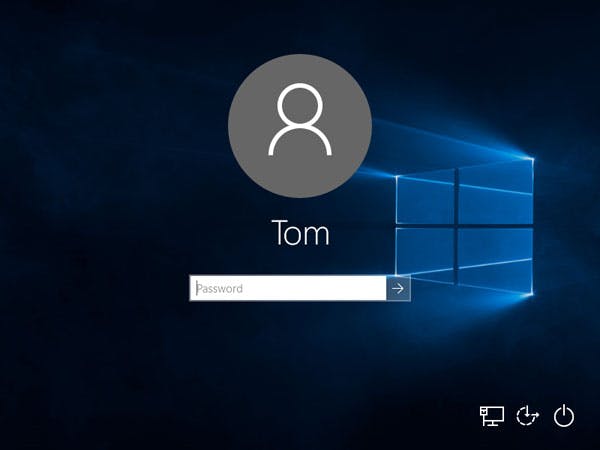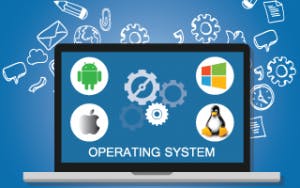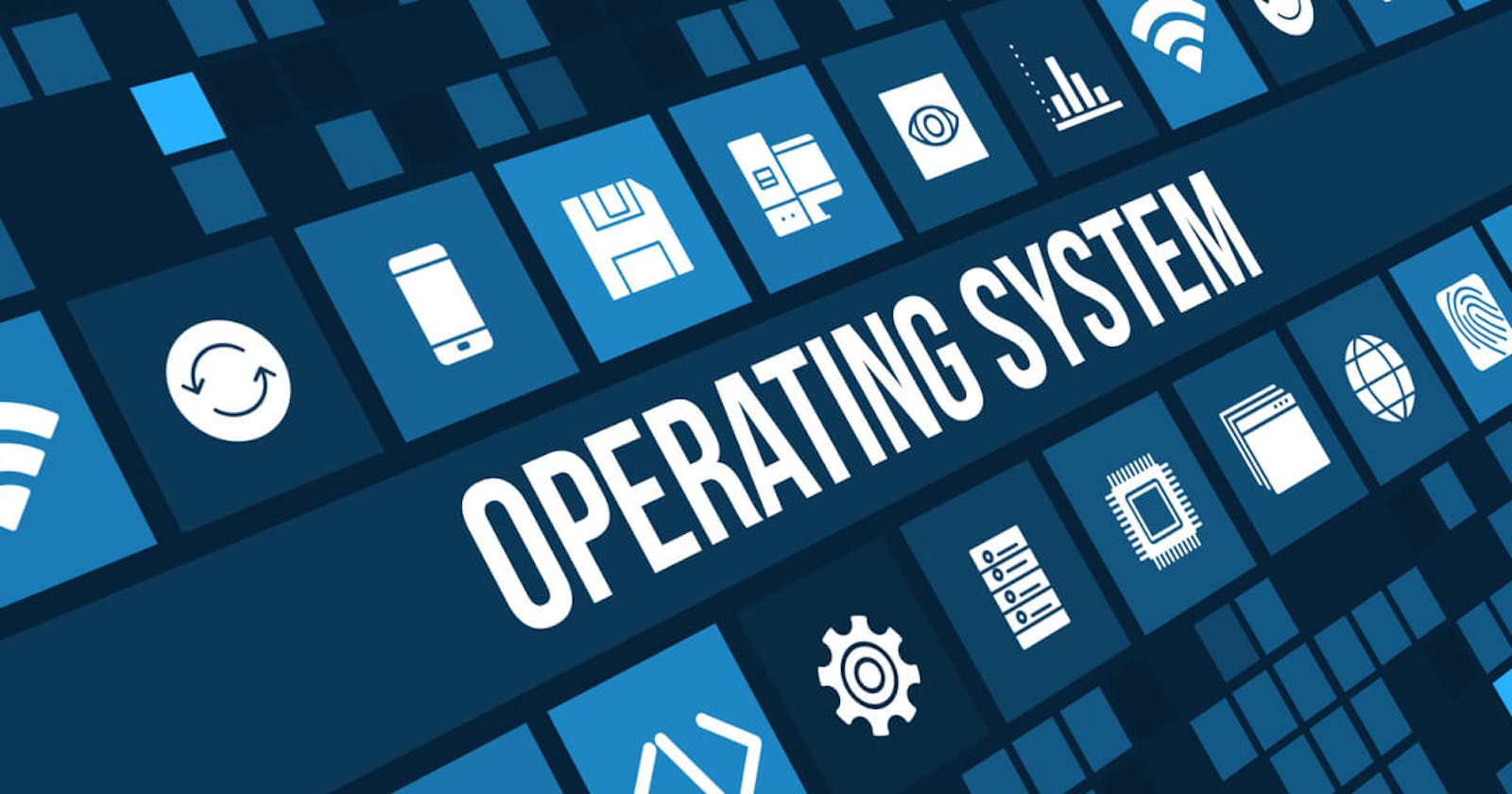PS:- This is my First Blog, I hope you will understand the OS and will learn a lot from this. :)
let us first understand what happens when you start your computer, before jumping on to the Concept of Operating System
What happens when you start your computer?💻
When you press the power button, the very first thing that happens is the CPU will move to BIOS(Basic input/output system) which is stored in ROM(Read Only Memory).
After that BIOS will be executed, It will execute the POST (Power On Self Test) here all the hardware will be tested, to check if the hardware is in working condition or not.
Once the POST is successful, immediately BIOS will load MBR(Master boot record) to the RAM(Random access memory), previously we were checking the hardware, if the hardware is in working condition then only we will load the software into the RAM.
After this MBR will load the Bootloader, i.e it will load the OS into the RAM.
Bootloader is responsible for starting up the OS

Now let us Understand the Meaning of Operating System In Depth
What is Operating System??🗒️
As you all know the basic definition of an Operating System is “interface between hardware and User”, but I want to know its meaning, can you elaborate on it? If you already know then well n good, if you do not know then give me a chance to explain about it.
Let me explain to you with one simple question.
Suppose I have given you the best Computer System with the best possible the fast possible CPU I have given to you, connected to it 64GB RAM and a very fast SSD of 2TB and whatever System you need take it Super Quality Full HD 4K Screen, super keyboard, mouse, camera everything you having.
Now on SSD I have given you all your favorite movies, tv-series and songs now I want you to watch them, can you watch them?, Unfortunately NO, you cannot watch them, why? Because you need a particular software then needs to be connected to the hardware, that will help you to read the file in SSD, run on the CPU, and show it to you on your Screen, Who will do this Job, your’s one and only
OPERATING SYSTEM.

So without an Operating System you as a user cannot do anything, first and last you will have to understand the meaning of an OPERATING SYSTEM.
This Operating System is a collection of programs, as it is having n number of programs
And it is software that helps the user to use the computer hardware.
If you want to use a Keyboard only OS can help you to use it, if you want to install or uninstall any application only the Operating System can help you do the task, if you want to create a file, folder or if you want to see whatever is there on your hard-disk, each n everything is done by the OS.
So without OS you cannot use hardware directly, you need some underlined OS to use hardware.
Services of Operating System:-
There are many services provided by the OS, some of them are listed below:-
User interface:- The very first service that is provided by the OS is User Interface, it is an interface that you can see in front of you whenever you turn on your computer.
Program Execution:- It is one of the important functionality of OS, the most important task of the OS is to execute the program on the CPU, This facility should always be there in any OS, you cannot ignore this functionality.
Input/Output Operation:- OS also helps in the execution of Input/Output Operation. Suppose I want to use a Printer, I will open one file and either press
Ctrl+p or clicking on the print button to print the file, as I clicked on the print button, my application will ask the OS to print the file, then OS will perform the print operation on the particular printer.
File-System Manipulation:- Whatever the operation related to File and Folder is performed by the OS, if you will right-click on any file or folder you get options like cut, copy, paste, rename, creating the folder inside another folder, and other operations are performed by the OS.
Communication(Inter-Process Communication):-
The communication between the two processes is performed by OS, For eg:-
Suppose you have opened Microsoft Word, and there is already one file that is typed and now you try to print the file from the word, Now this file will go to the Printer, which means there is one printer driver which is one process that is running, and there is one Microsoft word process, there is going to be communication between the two, Microsoft word process will ask the printer to print the file that I am sending to you, but both the process cannot communicate with each other directly, there is OS in the middle which will help the two process to communicate with each other.
Error Detection:- Error Detection is done by OS, eg:- Suppose I have inserted one pen drive and there is one movie of 1GB and I am transferring the movie to my hard disk from the pen drive, and the copying is going on but in the middle of copying the file I removed my pen drive, then what will happen? OS will detect the error and will tell you with a small message on the screen that the Source of the file is not present.
Accounting:- Whatever is happening in the Computer System, OS keeps the accounting of each n everything, how? As you know there is one thing known as Task Manager, where you will see CPU utilization, how much memory is being utilized, and you will know disk Percentage and other such things.

Goals of Operating System:-
Let's say you want to build the OS, so what must be your goals or say things that you need to take care of while designing the operating system
Convenience( User-Friendly ):- The more your OS will be convenient, it will be better for the user to use it, why windows OS is used so much? Because of its user-friendliness, even a user who does not have any technical knowledge of computers can use the OS easily because it is convenient, similarly for mobile phones, as you know the OS of mobile phones are so convenient that people who have language barriers who doesnt know much English can also use the phone easily.
Efficiency:- OS should be designed in such a way that it makes the best use of each resource (CPU, RAM, FILE STORAGE, I/O DEVICES, etc.), it should not happen that the CPU is utilized for 2% only and other processes are getting delayed because of that, So to make the best use of any resources it is important to improve the efficiency of the OS.
Portability:- Let's talk about the first generation of computers when computers were machines with very limited capability, some kinds of software were there working on those machines so that users can use it, but the software that was acting as a machine was highly machine dependent, i.e the software is made for one machine and that software will only work for that particular machine, it won't be able to work on any other machine. So with time, different types of computers came onto the market, so the scientist thought of making the type of software(OS) that can run on any machine, i.e machine-independent software, so that's how the idea of Portability came into the picture. The software should be made such that it can work with any CPU of intel, any type of RAM, and any type of computer hardware. For eg:- MACOS, is very particular to the apple computer. So these are not portable, you cannot use MACOS in any other computer system except apple computers.
Reliability:- The OS should be reliable as well, for whatever work we are using the OS, that work should be completed. Basically, it should be good in performance.
Scalability:- have you ever updated your OS? If yes, Why do you update it? Let me give you an answer because to enhance the features or facilities of OS when you install the OS on your computer system and suppose you want to make changes to your OS, so will you go somewhere else make changes and then reinstall it on your computer, if yes then your OS is not scalable. Scalable means if you want to add some features to OS, you update the OS without uninstalling it. I.e updating the OS on that particular computer system only. For eg;- Mobile OS is scalable, and windows OS is scalable because it gets updated on that mobile or computer system only.
Robustness:- Robustness means If something happens which is unusual to OS and then OS should be able to easily tackle that unusual thing. For eg while running any application or operation some unexpected error occurs the OS should be able to handle that unexpected error, so to handle such errors OS must have robustness.
Conclusion:-
The operating system is important software that is required to use the hardware on the computer system, You cannot use the Hardware directly, you will need some software to use the Hardware, and the software is called Operating System.
Thank you for reading my Blog, I hope you Understood the concept of OS. :)
